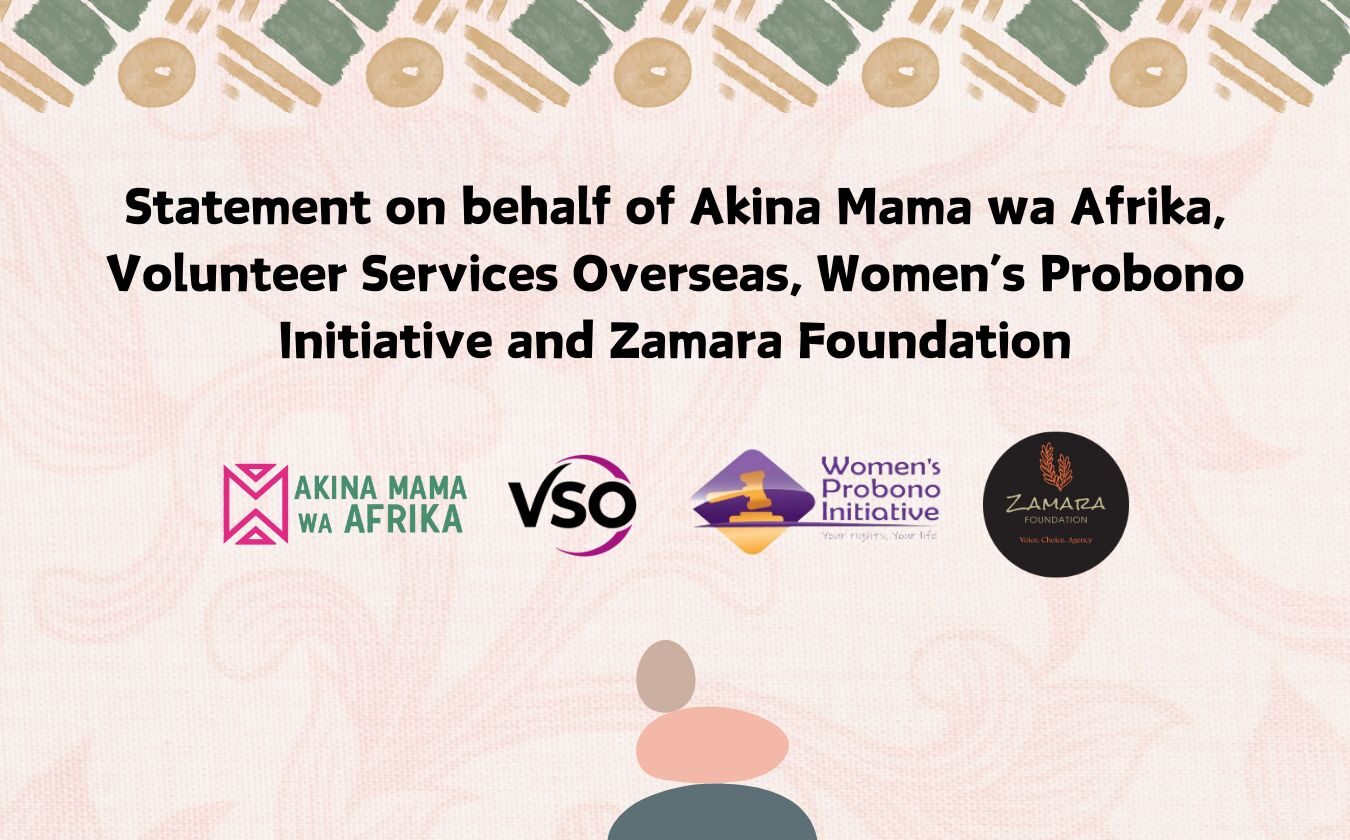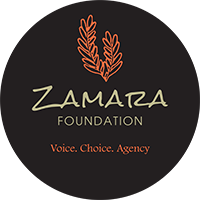
Statement on behalf of Akina Mama wa Afrika, Volunteer Services Overseas, Women’s Probono Initiative and Zamara Foundation
As we celebrate the 30th anniversary of the groundbreaking International Conference on Population and Development and the progress made so far, we are also cognizant of the need to still deliver on the promise of the platform of action. Five years ago, we celebrated the renewed commitments to the ICPD, including the three zeros: zero maternal deaths, zero unmet need for family planning, and zero gender-based violence. However, the COVID-19 pandemic shortly after showed the need for SRHR and SGBV information and services to be considered essential. It was a jarring reminder, after the 25th celebration, that SRH services such as family planning(FP)/contraception, comprehensive safe abortion care (CAC), post-abortion care (PAC), pre and postnatal checks, HIV/AIDS and sexually transmitted infections, counseling, maternal and child health and SGBV response were not considered essential during the disruption and strain brought on by the pandemic.
While we have seen reductions in maternal mortality and increases in contraceptive access, ICPD implementation remains painfully slow, especially given the impact of the pandemic. The progress we have seen is marred by the high rates of HIV infections among adolescent girls and young women compared to their peers, unmet needs for family planning, especially among young unmarried women, and high rates of teenage pregnancies. For example, in Uganda, 1 out of every four teenage girls is pregnant or has a child. Yet, we see limited information provided for antenatal and HIV-related services, stock-outs, especially of SRH-related commodities and a lack of private rooms, including youth safe spaces for young people to access SRH information and services. It is estimated that 133,455 adolescents are living with HIV in Kenya. There are also 18,004 new infections and 2,797 deaths among adolescents 10-19 years annually.
Efforts to implement preventive measures have been stalled or frustrated by public morality stances that deter access to accurate information and comprehensive services. We are seeing a rollback in the gains that were made on the implementation of comprehensive sexuality education, lowered age of consent to access SRH services, and decreased investment in family planning services. Discrimination and stigma remain a significant barrier for persons with disabilities, adolescents and young people, elderly persons, persons in humanitarian situations and sexual and gender minorities. Access for some of these groups has been criminalized, and their vulnerabilities have worsened due to retrogressive laws and policies, including state-sanctioned homophobia. This is escalated by the continued support for harmful traditional practices, such as child marriage and the pressure to repeal the ban on FGM. Deaths from unsafe abortions are still a reality in our contexts, with 9% of all maternal deaths being attributed to Unsafe abortions. Far too many young women have died or suffered morbidities because they could not get information or post-abortion care.
Additionally, the lack of domestic financing and prioritization for SRHR services remains a constraint to achieving gender equality and increased access to affordable and acceptable quality health services. Out-of-pocket expenditures remain high, and even when there is health insurance, essential services such as contraceptive access and treatment for reproductive cancers remain out-of-pocket expenditures. Due to the austerity and financial and fiscal constraints, SRHR financing at the country level are considered unfunded priorities and covered by donor funding. We need a reform of the global financial architecture that promotes and protects basic social services such as health and education as public goods rather than care work subsidized by the labor of women and marginalized persons who are forced to fend for themselves and their communities. We also need a reform of the global financial architecture that will increase countries’ fiscal space and capacity to domestically fund such services. Inadequate funds disbursed to health facilities lead to the de-prioritization of primary health care (PHC) without including SRH. SRHR should be considered an essential part of the package of services to deliver universal health care and primary health care (PHC).
Recommendations:
- We call for the full realization of SRHR built firmly on all persons’ bodily autonomy and consent regardless of their status and identity. And recommitting to the 3 Zeros means addressing maternal deaths by reducing the number of deaths from unsafe abortion and supporting access to Comprehensive Abortion Care (CAC), addressing stock-outs and increasing choice and contraceptive access, including for adolescents and young people. Focus on not only addressing sexual and gender-based violence but also prevention of SGBV and supporting comprehensive sexuality education so that children, adolescents and young people can identify violence and seek support when they need it.
- To increase public health financing and reduce reliance on external financing for critical health services, SRHR must be funded and prioritized by committing to public health financing systems designed to leave no one behind and taking a cautious stance towards leveraging private finance for health.
- Expand countries’ fiscal space for social spending, including SRHR and SGBV, by committing to systemic global action against tax abuse, illicit financial flows, and unsolved debt crises.
- Commit to human rights, intersectional and gender transformative approaches that focus on preventative and curative measures not hampered by negative social and gender norms that criminalize populations and/or cause harm
- Recognize that progress is only possible when retrogressive laws, policies and practices are repealed and unlearned and people and their health, especially their SRHR, are centered and recognized. “Public morality as a justification for state regulation of reproduction must be rejected.”
Download full statement HERE
